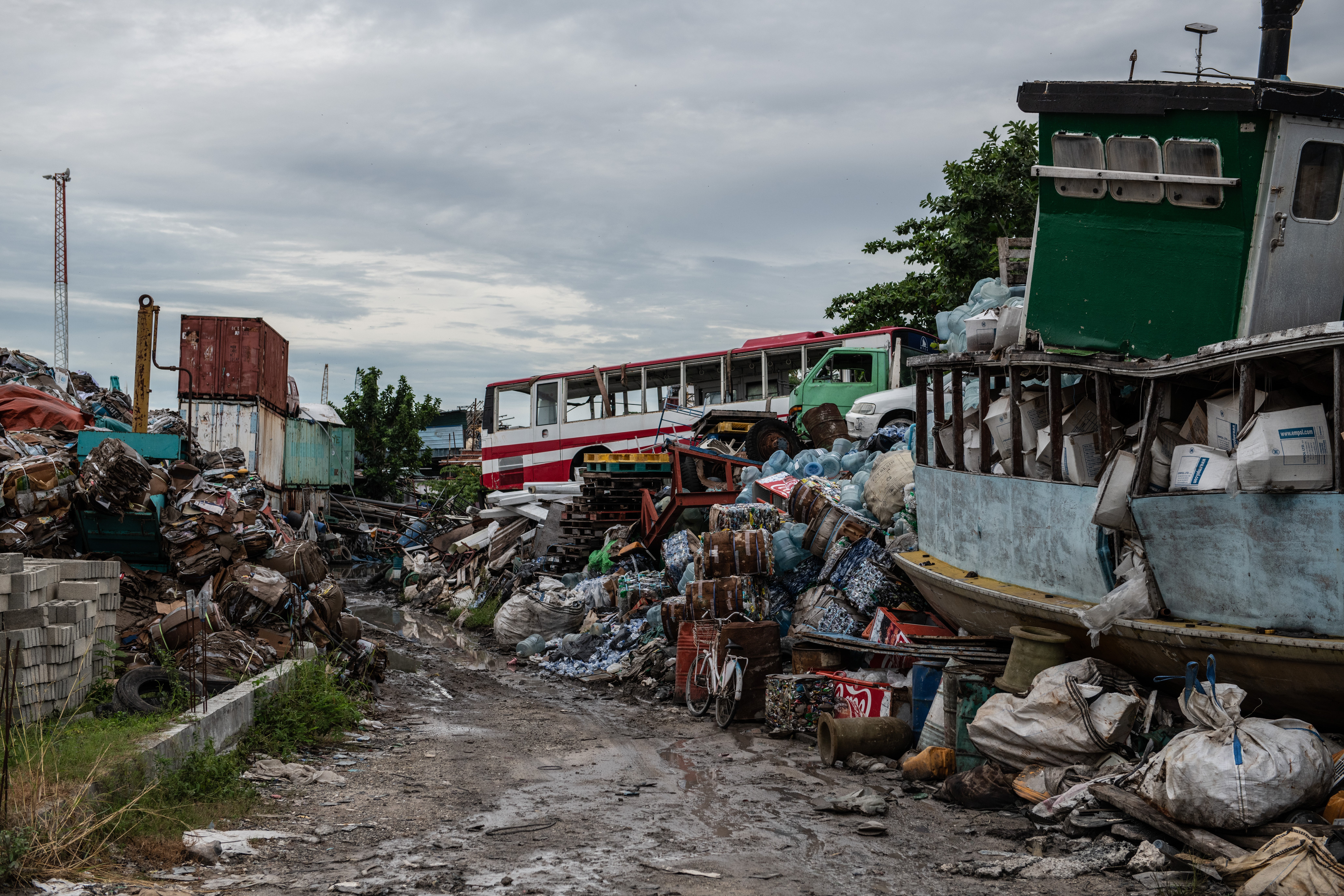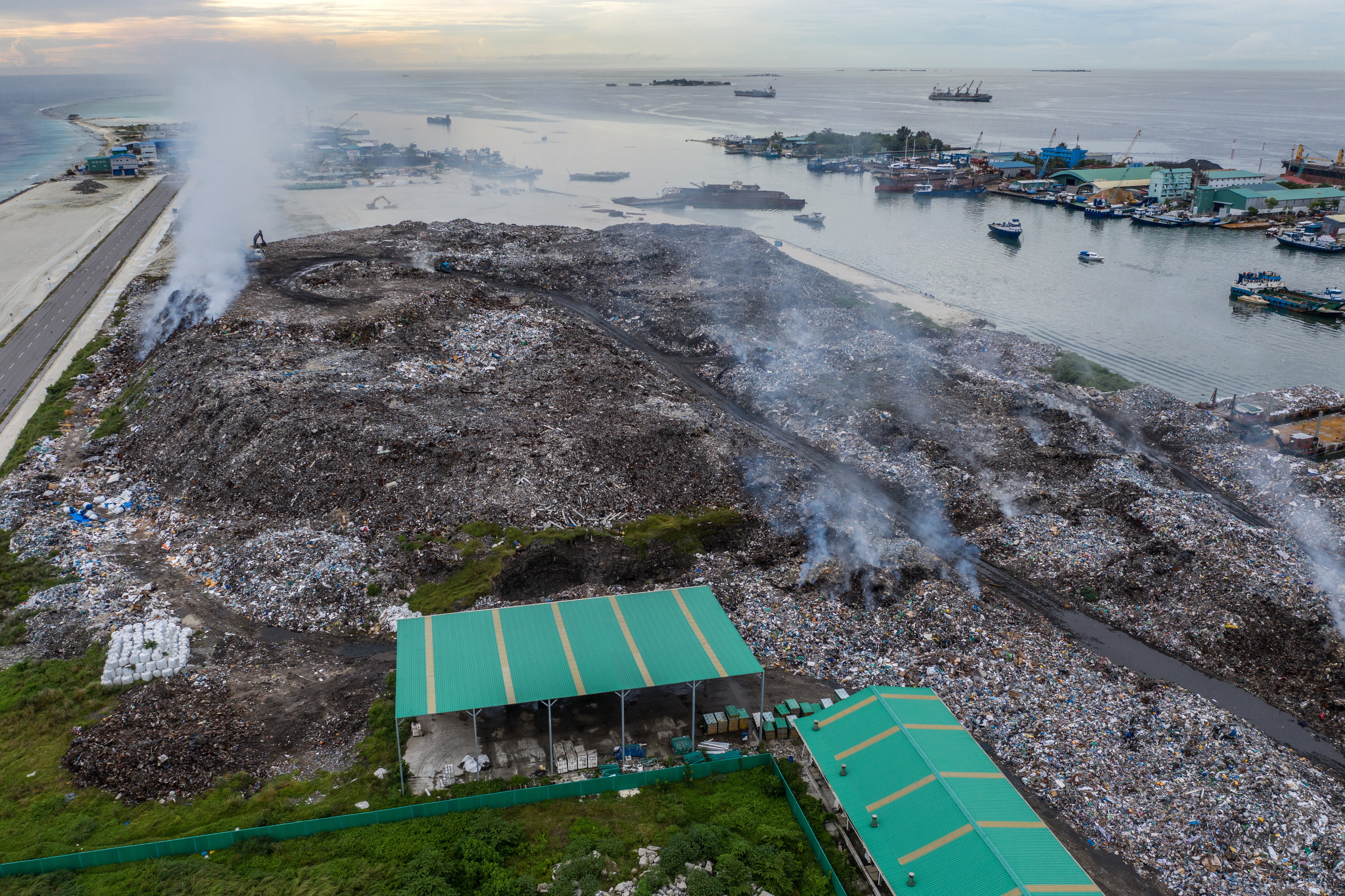Welcome to Thilafushi, the Maldives island built entirely from trash
A lot of the trash comes from the Maldives’ large tourism industry
On an island, space for anything is hard to come by — including garbage.
In the Maldives, an island nation in the Indian Ocean, the government decided to do something rather drastic to fix this problem in the early 1990s: they built a new island for their trash.
Actually, to be specific, they built an island out of their trash.
Since then, the new trash island — named Thilafushi — has accumulated waste from the nearby city of Malé, the country’s capital. And over the years, that trash has sometimes drifted out into the ocean or caught fire, leaving environmentalists concerned.
Now, the country is starting to change the way they approach garbage on the island, Gizmodo reports — but the challenges of the Maldives are indicative of a global trash problem.
Originally, the island was just a shallow area of the ocean, Channel News Asia reports. But as the trash has piled up, the shallow waters have become a fully-fledged island, complete with industrial buildings and roads.
The spot was chosen because of its proximity to Malé — the country’s largest city, with a population of around 250,000 people. But a lot of the trash also comes from the Maldives’ large tourism industry as people come from all over the world to visit beach resorts.
Space is a problem across the island nation for more than just trash, Andrea Simonelli, a political scientist at Virginia Commonwealth University who’s conducted research on the climate crisis in the Maldives, told The Independent.
On one of the smaller islands she’s visited, Dr Simonelli noted a giant pile of trash, often on fire. This can cause issues with potentially toxic fumes, but these islands are too far away from Malé to bring their garbage to Thilafushi, she says.

In one sense, by moving the garbage away from most people in the city, the trash island may be somewhat more environmentally friendly than other methods of waste management.
But the island also keeps the trash in the ocean, where it can impact marine life. In 2011, the BBC reported that the government had banned trash dumping from hotels on Thilafushi since the garbage had started falling into the waters. And Sky News noted last year that fires had burned on the island for decades, often spreading smoke to Malé — though the fires have now stopped.
Thilafushi exemplifies the immediacy of space issues in a country like the Maldives. In addition to garbage removal, the limited space has often forced young people to move to Malé because there’s no place for them to start a life on their home island, Simonelli notes.
Space is likely to become an even more pressing issue for the country in the future. The Maldives is the world’s lowest-lying country at an average of just 1.5 metres (5 feet) above sea level. (According to Gizmodo, the country’s highest point is actually on the trash island.)
The climate crisis is expected to raise sea levels in the Indian Ocean by at least 0.6 metres (2 ft) by 2150, with the possibility of exceeding 2.2 metres (7 ft). When most land is as low as it is in the Maldives, any amount of sea level would eat up a lot of ground.

The country has a few potential solutions to ease their trash trouble. For one, the Maldives government has written up plans to build a waste-to-energy incinerator around Thilafushi. In addition, Gizmodo reports the nation is taking steps to ban single-use plastics — and Dr Simonelli notes that the country could utilize some of its uninhabited islands for other purposes like recycling facilities.
But the Maldives’ trash island is representative of a more global problem of waste. The only reason most of the developed world isn’t thinking about waste management is because someone else deals with it for us, Dr Simonelli points out.
“At the end of the day, we’re all caught the same battle of all of these things that we want that are sold to us in a way with insane amounts of packaging that is really unnecessary,” she says.
Join our commenting forum
Join thought-provoking conversations, follow other Independent readers and see their replies
Comments


Bookmark popover
Removed from bookmarks